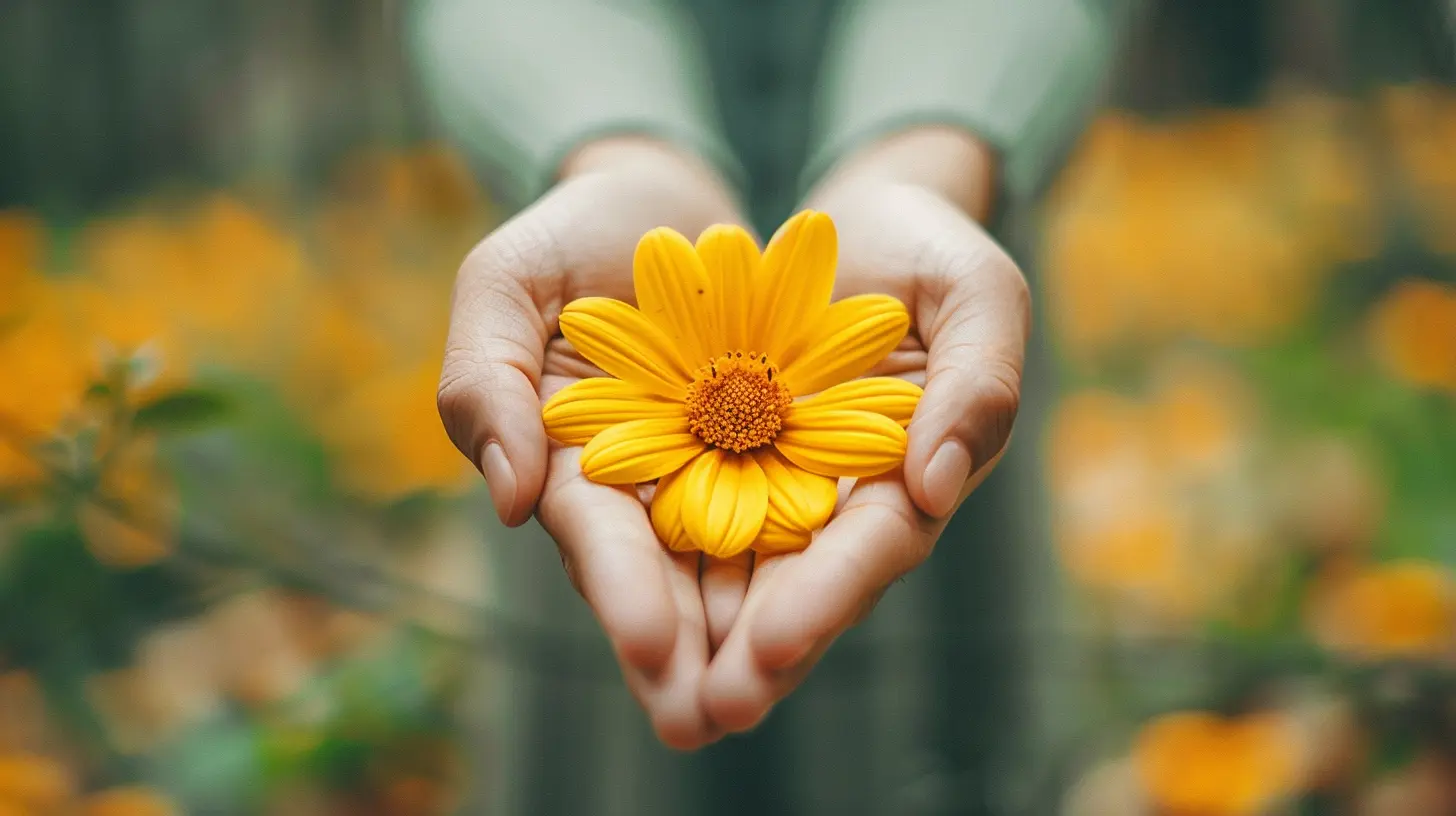The Role of Forgiveness in Personal Growth
3 July 2025
Forgiveness—it's one of those things we all know we should do, but let's be real: it’s easier said than done. Whether it's a friend who betrayed us, a family member who let us down, or even ourselves for past mistakes, holding onto resentment can feel justified. But here’s the catch—when we refuse to forgive, we're the ones carrying the weight, not the person who hurt us.
Ever heard the saying, "Holding a grudge is like drinking poison and expecting the other person to die"? That’s exactly what unforgiveness does. It stunts our emotional growth and keeps us stuck in the past. But when we choose to forgive, we unlock new levels of personal development, emotional freedom, and inner peace.
So, let’s dive into why forgiveness is crucial for personal growth, how to practice it, and what happens when we let go of past hurts.

What is Forgiveness, Really?
Forgiveness isn’t about saying what happened was okay. It doesn’t mean forgetting, excusing, or even reconciling with the person who hurt you.At its core, forgiveness is about letting go of the emotional burden tied to a painful experience. It’s choosing to release resentment and stop allowing the past to control your present.
Think of it like carrying a heavy backpack filled with rocks. Every grudge, every resentment—it's another rock in your bag. Over time, that weight slows you down, making personal growth feel impossible. Forgiveness is simply choosing to take the backpack off.

How Forgiveness Fuels Personal Growth
1. Reduces Emotional Baggage
Holding onto anger and resentment is exhausting. It drains your mental and emotional energy, leaving you stuck in a cycle of negativity. When you forgive, you free up that energy for things that actually matter—self-improvement, happiness, and peace.2. Improves Mental Health
Studies have shown that people who practice forgiveness experience lower levels of stress, anxiety, and depression. Why? Because resentment keeps your nervous system in a constant state of tension. Forgiving releases that tension, bringing a sense of relief and emotional healing.3. Strengthens Emotional Intelligence
Forgiveness forces you to acknowledge and process your emotions. You become more self-aware, develop greater empathy, and learn better ways to manage conflict. These skills are crucial for personal and professional success.4. Boosts Self-Esteem and Self-Worth
When you forgive, you're telling yourself, "I deserve peace." You stop defining yourself by past pain or mistakes. This shift in mindset can lead to stronger self-worth and confidence, allowing you to take on new challenges without the weight of past failures holding you back.5. Enhances Relationships
Forgiveness isn't just about you—it improves your relationships, too. No one is perfect, and conflicts are inevitable. But when you're able to forgive, you foster healthier relationships built on understanding and compassion rather than resentment and grudges.
The Science Behind Forgiveness and Growth
Psychologists have found that forgiveness actually rewires the brain. Research using MRI scans shows that forgiveness activates regions in the brain associated with empathy, moral reasoning, and emotional regulation.When you hold onto a grudge, your brain stays in a fight-or-flight state, releasing stress hormones like cortisol. Long-term, this can lead to chronic stress, high blood pressure, and even a weakened immune system. When you forgive, you shift from a stress response to a healing response, allowing your brain and body to find balance.

The Challenges of Forgiving
Let’s not sugarcoat it—forgiveness is hard. If it were easy, we’d all do it without hesitation. Here are some common roadblocks:- Feeling like forgiving means condoning the behavior – Remember, forgiveness is about healing you, not excusing them.
- Fear of getting hurt again – Forgiveness doesn’t mean letting someone back into your life if they’re harmful. Boundaries are still important.
- Struggle to let go of the pain – Emotional wounds take time to heal. Forgiveness is a process, not a one-time decision.
Steps to Cultivating Forgiveness
Ready to let go of past hurts and step into a healthier future? Here are some practical steps to help:1. Acknowledge the Pain
You can't forgive something you refuse to acknowledge. Be honest about how you feel and why the situation hurt you.2. Shift Your Perspective
Try looking at the situation from another angle. What led the person to act as they did? It doesn’t justify their actions, but understanding can make letting go easier.3. Decide to Forgive
Forgiveness is a choice. It won’t happen by accident. Consciously decide that you’re ready to move forward, even if your feelings haven’t caught up yet.4. Release Resentment
Journaling, meditation, or talking to a trusted friend or therapist can help process emotions. Sometimes, simply saying out loud, "I choose to forgive this person for my own peace," can be powerful.5. Set Boundaries (If Needed)
Forgiving doesn’t mean allowing yourself to be mistreated again. If someone has repeatedly hurt you, set firm boundaries to protect your emotional well-being.6. Practice Self-Forgiveness
It’s not just about forgiving others—you also need to forgive yourself. Holding onto guilt and self-blame stunts personal growth just as much as resenting others.
Real-Life Examples of Forgiveness Leading to Growth
If you're still skeptical about the power of forgiveness, consider this: Some of the most inspiring people in history have embraced forgiveness despite unimaginable pain.- Nelson Mandela was imprisoned for 27 years, yet he forgave his captors and led South Africa toward reconciliation.
- Oprah Winfrey overcame a traumatic childhood and chose to forgive those who hurt her, using her experiences to help millions.
- Malala Yousafzai was shot for standing up for education but forgave her attackers and continues to advocate for global education.
Forgiveness didn't just free them from bitterness—it propelled them toward greatness. And it can do the same for you.
Final Thoughts
At the end of the day, forgiveness isn't about the other person. It’s about you—your peace, your growth, your future. Holding onto resentment is like driving with the parking brake on. Sure, you can still move forward, but not without struggle.When you choose to forgive, you give yourself permission to flourish. You let go of the weight that’s been holding you back and step into a lighter, freer, and more fulfilled version of yourself.
So, what’s stopping you? Maybe it’s time to release the burden and embrace the personal growth that comes with true forgiveness.
all images in this post were generated using AI tools
Category:
Self HelpAuthor:

Alexandra Butler
Discussion
rate this article
2 comments
James Ramos
Forgiveness is like a little magic key that opens the door to personal growth! Embrace it, and watch your heart and mind flourish. Keep shining!
October 26, 2025 at 3:42 PM

Alexandra Butler
Thank you for your insightful comment! Embracing forgiveness truly unlocks our potential for growth and healing.
Lumen McWilliams
This article beautifully captures the essence of forgiveness as a vital step in personal growth. Embracing forgiveness not only heals our hearts but also empowers us to move forward with resilience and hope.
July 11, 2025 at 4:54 AM

Alexandra Butler
Thank you for your thoughtful comment! I'm glad you resonated with the message of forgiveness as a vital part of personal growth.


